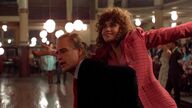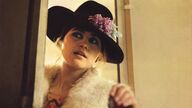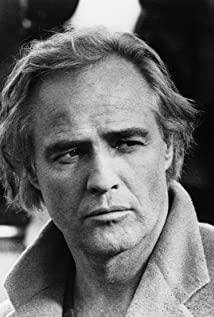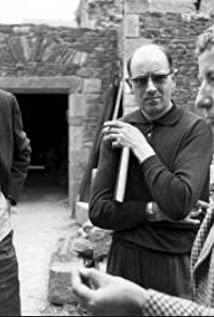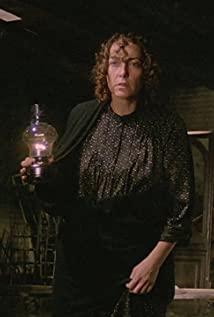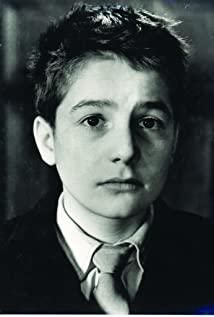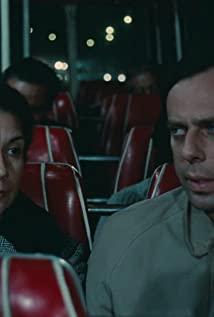If there was a time between Paul and Jeanne that was far away from civilization, it was and only when they had just entered the empty room. Only the first time, all the rules and taboos included in the civilization did not have any effect on them. They had a brief, discontinuous discussion about the apartment after the four-eye transaction, but the important thing was a sudden outbreak. The original is like animal sex. At the end, let Na and Paul's body separate and she rolled to one side, and stopped after a long distance from Paul. The sound of civilization is the ringtone of a phone that suddenly intrudes and then stops, reminding others that people have lived here, no matter whether they intend to answer or not, there are always people who can still intervene in this space and them in this way; let Na gradually cease to be satisfied with them. The understanding of Paul is only limited to the body, she began to explore and question-once such a procedure is initiated, the direction of Paul and Jeanne in the maze of people's hearts becomes continuous behavioral clues. All this is not out of human animal instinct, but out of a closeness that shouldn't begin. Paul should be subject to his feelings for his wife, and Jeanna, she also has a boyfriend. And Jeanna's planned itinerary was to go to the train station to meet Tom after seeing the apartment. Paul and Jeanne both walked to the same place during this time. They once passed by on a deserted street with billowing traffic, met in the phone booth, and then, one after the other, walked into this apartment. . We need to discover Paul's presence from Jeanne's perspective. He came in, stayed, and seemed to leave but did not leave. When they walked out of the apartment together, Paul stretched out his hand to tear up the renting advertisement and returned to the still-carrying and empty street, letting Na walk towards the train station. She had a goal.
The apartment to be rented was not a space they chose, and the purpose of the room was uncertain due to their behavior. Paul moved in some dry furniture early on, including a table, chairs, and a huge mattress. The mattress was big, and the worker told Jeanne that he would know how to place it, your husband. This is not Paul's identity. Jeanna is here to return the key to Paul. Paul threw the mattress on the floor of a room. They also continued the initial dispute in the apartment and moved a chair with armrests from the fireplace set by Jeanna to the window according to Paul's advice. Paul has always insisted on the boundary between the inside of the apartment and the outside world, so the practice of setting up a seat in front of the window is suspicious. It is some faint wish, waiting to be repaired and expanded in the words they talk. In this seemingly spacious, bright and warm apartment, Paul repeated his rejection of civilization over and over again. He didn’t want a name, didn’t listen to Jeanna, didn’t want to tell Jeanna his age and didn’t want to know Jean Na's age. He said something that seemed to be far away from his life, but the fragments of these words revealed a close connection with reality. The question Jeanne asked Paul during one of their meetings approached his trauma in a completely inadvertent process: "You seem to be very hostile to women. How do they treat you?"
Jeanna revealed her hesitation in the way she treated this apartment, which corresponds to her hesitation towards Paul and Tom. Paul entered her life at a sudden speed. Even though the relationship between her and Tom did not seem to have changed on the surface, they still followed the direction of their relationship, and even entered the stage of talking about marriage, but because of Paul The unknown interruption caused by the entry of Jang Na took place in Jeanna's heart. On the other hand, for Paul, his wife Rusha and Jeanna were options he could not decide. Although Rusha was dead, the problems she caused continued for Paul for a long time. Paul loved Rusha deeply, and Paul intermittently discovered that Rusha had a lover. The man was hiding in his shadow, wearing the same pajamas and living in the same room as him. But in essence, they are completely different, otherwise Rusha would not have to solve the problem in this way.
In this flat chain relationship, everyone means the puzzle of others: it is always a way and cannot be a destination. Even with such a willingness, it is impossible for an individual to provide answers and satisfaction for others. Paul and Jeanne are just performing the same behavior. The difference lies in the characteristics of the behavior. One is synchronic and the other is diachronic. Jeanna faced Paul and Tom. The two appeared alternately beside her. Paul led her to experience the limits of her body, adding pressure directly to her feelings; while Tom was always hesitant around her, their mutual The experience is always through other media.
Tom and Jeanna associate like ordinary young people, they exchange views, talk, and plan for the future. Tom is a young director. He is shooting a show called "Portrait of a Young Girl". He wants to use a movie to record his and Jeanna's life, their love, until they get married. So when Jeanna ran to the train station to pick Tom up, she ran into his lens. She hugged him, it was the enthusiasm in his plan; he asked her what she was feeling when he was away, and her confession made him ecstatic, because such a rhythmic and lyrical confession is not only consistent but also beyond The rules and imagination of the image. Jeanna's reaction to Tom was not enthusiastic. After her natural unfettered emotions were separated by the "movie", Paul's existence had a deeper value. Jeanna followed Tom and her own rhythm to the edge of the wedding, and found that Tom's concern for movies was increasing day by day, while his love for her was declining. They all tried their wedding dresses in the bridal shop; Jeanna rushed out in the rain in her wedding dress and ran towards Paul.
Tom and Paul are resisting the innocent and energetic enthusiasm of the twenty-year-old Jeanna, but Paul’s resistance comes from his own body and his traumatic consciousness, but Tom foolishly places the recording lens and microphone to turn himself Putting it in an observation and review perspective, it breaks down the enthusiasm for participation and response. Jeanna escaped from the ongoing filming in the country house to meet Paul in the apartment, using "work" as an excuse. She and Paul are actually just playing, even if the playing seems to be a destined love, when Jeanne then tells Paul that her first love is her cousin Paul. Paul was furious when he heard Jeanna's name accidentally, but Jeanna didn't know that it happened to be his name. He unfeelingly rejected Jeanne, such an American, a former boxer, a guerrilla in the jungle of South America, a journalist and writer stationed in Japan, came to Paris and married a wealthy woman with a dazzling mix of identities. Because of her complex personality, she has fallen in love with her in the play. Those melancholy temperaments fascinated her. She paid her own enthusiasm for this and began to explore. She searched Paul’s pocket in an attempt to discover his identity. There are clues, but I only found the shopping credentials of a high-end clothing store. This credential is too trivial to rely on: modern society cannot teach people how to identify who can place love only with their bodies and intuition. These are exactly what civilization has abandoned. Content: How to draw conclusions based on identity, status, age and property, but has accumulated vast knowledge, which is a replacement for the former under the premise of validity and certainty. If she couldn't find her identity and position, she obviously couldn't establish any explicit relationship with him. She had an apartment space to dress up in advance for her behavior-the emotions derived from it, such as love, were destined to be incapable of tolerating. Jeanna returned to the realm outside the apartment, trying to find a solution in that more real social realm, and the pressure brought back collapsed Paul's repeated indoctrination of her in the apartment to resist by subverting the rationality represented by the name. Social effort. As a result, the power relationship between Paul and Jeanne has also been reversed, and he no longer has the power over Jeanne. The changes in the relationship are mutual. When Jeanna disregards Paul’s strong opposition to using the laws of civilization, Paul will also find that this woman who met him in a space that has nothing to do with anyone is no longer obedient to him. . His will will also encounter the possibility of disintegration, because the order established in the apartment with his best efforts becomes an illusion under the contrast of the outside world, and it is no longer enough to indulge him. The oppression of the outside world against it has never disappeared from the moment it appeared in this space. As time progressed, Paul no longer had the opportunity to stop
Rusha, a woman who died at the beginning of the story, symbolizes the predicament that Jeanne may encounter on a very abstract level. Her death caused her to reject her husband Paul altogether, and the lover who rarely showed up but expressed regret and perplexity to Paul for her death when she had the opportunity. Maybe the two people love her, and how she feels, we don't know, but it is clear that these loves have unresolvable contradictions, and love itself is not enough to provide her with a reason to continue living. Even their unknowingly joining hands and filling each other's gaps cannot achieve this. Did you choose to quit forever because of an overly strong reaction, or because you saw the omnipresent and unavoidable boredom? Rusha doesn't give any explanation to the possibility that makes people more inclined to the latter. The body has always presented itself as an unsystematic knowledge system that has been repeatedly reproduced by means of inquiry, retelling, and argumentation, yet it still cannot perform the function of surpassing its own power. The sensation of the body and the meaning of life have not changed. People can approach the meaning through the body, but in the blink of an eye, the sensation and meaning of the body separate and deviate from each other. Everything thereafter is mutual identification with numerous deviations. No matter how strong, the body may not constitute a way to achieve any meaning in life. Paul has already suffered such failures in his relationship with Rusha, but he seems to be unable to accept this fact. He has to repeat it on Jeanna, altering and distorting her body in various ways, forcing her to act in his actions. Under the groan of submission, he had conquered her countless times, as seen from the picture; he hoped to establish Jeanna's attachment to him in the sexual mutual satisfaction, he did it, but he was resisting Jeanna's social norms. When he came to adjust their relationship, he missed the opportunity to preserve his emotions; for a twenty-year-old child, Jeanna was unable to surpass her instinct, that is, to surpass the knowledge she had learned from the society to help her and Paul. The emotions in between are cached. Opportunity is fleeting; when Paul, who has been in the past, meets her again, they danced in the ballroom, and clamored for love in the tango dance. When the music went out, Paul chased her and came to her home early in the morning. Tell him about herself - it's too late, she is at a loss, she can only raise a gun, and she pulls the trigger. She can't even know the name of the person she killed, whom she once loved so deeply.
Even if the problem of sex was separated from the relationship between two people and placed on Paul alone, and given him a strong ability to surpass other men, it did not help him to establish a relationship with Jeanne after the failure of his relationship with Rusha. In a normal relationship, he can’t rely on the ability of sex—for Jeanna, how sure this is—makes Jeanna trust and completely tame like the tame shown by her body. . With endless confusion, Paul turned a big circle in front of Jeanna, but in the end he still couldn't grasp the direction. Only himself was in the trap, and Jeanna didn't know when he was no longer nearby. He left, was forced, and left this see-saw by leaving the world.
Prior to this, Paul's wife Rusha committed suicide. Although she did not leave a word to anyone before her death, the same problem was looming in her behavioral context. This is everyone’s problem. The desire for harmony between body and mind is ultimately an illusion that is difficult to achieve, and the desire itself is also floating. After one desire is satisfied, another desire arises, one after another, striking the fragile life. , Fragments and boredom are drifting in reincarnation. At Rusha's age, she would no longer seek Jeanna's aggressive and energetic pursuit and rejection. The surviving people, Jeanna, Tom, and Rusha's lover, they just ask or will not ask such questions for the time being.
When the two men who were equally helpless finally faced each other in the morning, when they talked about the dead woman, one was puzzled, and the other did not necessarily know better than him. They have reason to be puzzled, because they can't ask. Under the standard of ability to make a woman happy or just make a woman live, they can't save Rusha regardless of whether they have strong physical power. Once thinking about this question for which no answer can be found, Rusha will only be able to avoid being asked if she withdraws. She committed suicide, and no one believes that she committed suicide. Then Paul will repeat this fate, because Rusha's death transferred this question to him, and he is even more unable to find the answer than Rusha. He will also die and be killed by Jeanna, but no one believes that he died of helplessness. People will understand it according to this logic. It is Jeanna who imagined the answer to the police officer who was about to face after he killed Paul. , As if to fight back in self-defense against an accidental violent danger: "He tracked me down, and when he got home, he wanted to..." Paul and Jeanne's unique relationship arose between them. When such a relationship desires results and becomes a question, it requires an answer. When they are tortured, they are only themselves; the power of sex is once again shown but it is only so; when they open up to each other in sex, they enter a transitional state, a space similar to a bridge. , Is just experiencing: it is possible to arrive, it is possible to connect, and it is also allowed to return. This state, because it contains a variety of possibilities, shows a fascinating atmosphere. But the transition itself cannot be extended indefinitely, because the rejection of staying, transition and stability are incompatible. On the other hand, any peak experience is always fleeting, no matter how hard you try to chase it, it will not turn it into a continuous normal.
View more about Last Tango in Paris reviews




